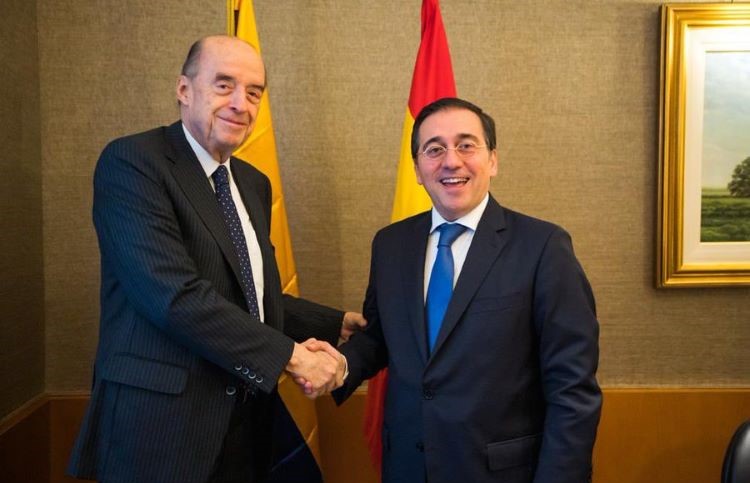Eduardo González
Spain will act as an accompanying country, and not as host, during the peace negotiations between the Colombian Government of Gustavo Petro and the National Liberation Army (ELN) guerrillas, which began this summer in Havana, as informed yesterday by the Colombian Foreign Minister, Alvaro Leyva, and confirmed by Foreign Ministry sources to The Diplomat.
In early August, the Spanish government expressed to the newly constituted Colombian Executive its willingness to assist in the peace negotiations. “Spain has expressed its willingness to help in the Colombian peace process, in line with the offer also made by the President of Chile, Gabriel Boric, to host the negotiations”, declared Gustavo Petro himself at that time. Likewise, during a press conference at the end of August during the official visit of Prime Minister Pedro Sanchez, Pedro thanked Spain for its offer to host the negotiations, but specified that it is up to the ELN leaders to decide where they prefer to hold the talks.
Álvaro Leyva announced yesterday in Buenos Aires, after meeting with his Spanish counterpart, José Manuel Albares – on the occasion of the EU and CELAC ministerial summit – that Spain “will facilitate the talks” by accompanying the process, but specified that the negotiations will take place in Cuba. During the meeting with Leyva, the Spanish minister had reiterated “Spain’s willingness to contribute to achieving peace” in Colombia, as reported by Albares himself through his official Twitter account. The negotiations will be held in Cuba and Venezuela will be the guarantor country, at Petro’s express request to Venezuelan President Nicolás Maduro.
The Colombian government’s talks with the ELN began in 2017 in Quito (Ecuador), during the government of Juan Manuel Santos, and in 2018 they were moved to Havana, where the main leaders of the guerrilla are still meeting. The then Colombian president, Iván Duque, demanded that the ELN release all the hostages it is holding and renounce that and all its criminal activities. The guerrillas’ response was negative and in 2019 they staged an attack against the Cadet School, which left 22 dead and 68 wounded. The Colombian government asked Cuba to hand over the negotiators who are in Havana, but the island invoked diplomatic protocols not to comply with this request.
During the electoral campaign, the ELN expressed its willingness to return to the negotiating table if Gustavo Petro were elected. After his inauguration, the new president held a conversation with the Cuban ambassador in Bogotá, Javier Caamaño Cairo, to request that Cuba be the country where negotiations with the ELN would take place. He also ordered the withdrawal of the search and arrest warrant for the negotiators of the guerrilla group in Havana, such as Israel Ramírez Pineda, alias ‘Pablo Beltrán’, or Víctor Orlando Cubides, alias ‘Aureliano Carbonell’.
Albares’ meetings and intervention before EU-CELAC
On the other hand, José Manuel Albares also held bilateral meetings in Buenos Aires with the President of Argentina, Alberto Fernández; the Argentine Minister of Economy, Sergio Massa; the Foreign Minister of Ecuador, Juan Carlos Holguín; his counterpart of Paraguay, Julio César Arriola; the Minister of Foreign Affairs of Surinam, Albert Ramdin; his counterpart of Bolivia, Rogelio Mayta; his counterpart of Panama, Janaina Tewaney Mencomo; and the Haitian Minister of Foreign Affairs, Jean Victor Généus.
Likewise, during his speech at the EU-CELAC ministerial meeting, he reaffirmed Spain’s “commitment to Latin America” and reiterated that the Spanish Presidency of the EU in 2023 “will be key to strengthening ties between our regions and for Europe to once again look strongly towards Latin America”.





